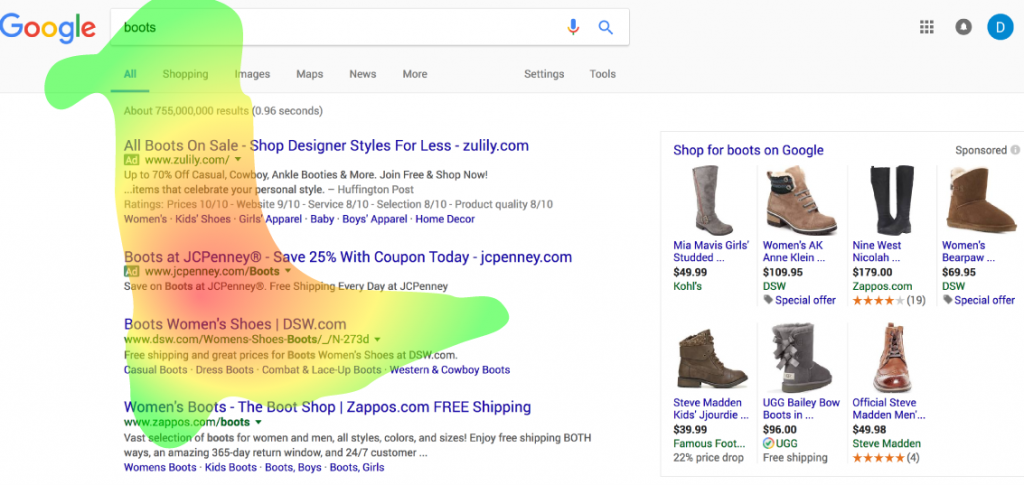The internet doesn’t really care how big or small your business is – and that can be a great thing!
A physical store has all sorts of limitations based on size and geography. After all, customers will only travel so far to visit a physical location. The size of the store also determines available inventory.
Online business don’t face these limitations. Customers from all over the world can purchase items from an e-store. Plus, an online store isn’t necessarily responsible for storing huge amounts of inventory.
The big idea is this: With the right SEO techniques, small businesses can outrank national corporations. But there’s a right way and a wrong way to compete with “the big guys.” Here’s a complete guide to ranking big when your business is small:
Local SEO for Your Local Business

If you’re creating a website to compliment a brick-and-mortar store, you’re already ahead of the game. Local SEO techniques can propel a small local store to the top of the search results. Effective local SEO strategies include:
- Emphasizing mobile use. Many local shoppers use their smart devices to search for products and services while they’re already out in the nearby neighborhood
- Incorporating local content. Both users and search engines respond to content which includes references to specific locations in the community
- Using a consistent NAP. Put your Name, Address and Phone Number throughout your content, meta data and even your website URL (if possible). Make sure you write your NAP in the same way each time.
- And more! An experienced SEO agency will have a ton of local techniques both large and small which can be implemented.
A chain or virtual business has a hard time competing against a local business on strictly SEO grounds. This is why larger brands often turn to ad buys. So once your local business has implemented all the no- cost SEO techniques, you’ll need to look at how you should spend your marketing budget – and how you shouldn’t.
How Your Marketing Budget Affects Your Bottom Line
In most cases, the bigger the business, the bigger the marketing budget. Does more money to spend on advertising outweigh the benefits of local SEO? What role does paid search play for a local business?
While every type of business is different, there are a few general conclusions we can draw. Large national companies can dominate Adwords. But local businesses will have an easier time ranking in the local pack.
Local vs. National Search
How people search has a huge impact on the results. A search for “widgets near me” will usually bring up a local carousel. There might be local businesses displayed, but not necessarily.
If I search for “widgets” I’ll get either a local or single pack. Of course, I’ll also see ads. This is where things get more complicated. For instance, what do users do when their above-the-fold results show both ads and packs?
User Behavior with Paid Ads
Heatmap research shows a pretty consistent pattern. When search results display ads, a single local result and a local pack, most people click on the first organic result. This behavior holds true under a variety of ad placement, pack placement and local results.
Most users always prefer the first organic result! This doesn’t mean Adwords is useless, of course. It just shows that organic results are still worth striving for, and a large budget doesn’t always translate to SERP domination.
Adwords vs. Spending on Local SEO
Most small and medium-sized businesses don’t have an unlimited marketing budget. They need to get the most bang for their buck. Does this mean splitting the budget between Adwords and organic SEO? Or favoring one over the other?
After analyzing a variety of different results, some general conclusions can be drawn:
- Most organic and local pack results show no Adwords presence.
- There is very little overlap between Adwords spend and organic local pack results.
So, where should you focus your spending?
The answer depends on what your goals are…
If you want to increase local foot traffic, focus on local SEO and disregard Adwords. While Adwords often seems like a logical choice, you might jeopardize your organic traffic. This is because your Adwords buys will actually make you compete against your own organic results.

If you want to gain web traffic and online conversions, focus on Adwords and disregard massive local SEO efforts. This doesn’t mean ignore local SEO efforts entirely, but also don’t put so much emphasis on local SEO that it overshadows your Adwords buys.
In order to get the best results, you need to make a choice between the types of traffic you want to attract: foot traffic or web-based traffic.
The Main Takeaway on Adwords for Local Businesses
Small businesses competing against large national chains should NOT bid on Adwords.
Your time, money and efforts are better spent on local SEO efforts. As a local business, you’re in the best position to wind up in the local pack. People searching locally (with “local intent”) are far more likely to click on the local pack or organic results instead of paid ads.
So you’re in a better place to win the click. In fact, you’re not only wasting money on paid search placement, you’re also interfering with your local SEO efforts.
How to Attract Local Traffic (without Adwords)
So, where should you put your efforts? Here are four key strategies:
- Create a Google My Business page
- Include Name, Address and Phone Number (NAP) throughout your site
- Use Schema markup on the NAP
- Enlist an SEO agency
Internet marketing pros will be able to get you far better results than what you’d get by spending on Adwords. Local SEO strategies, designed for your business and local area, will help you generate foot traffic, phone calls and, ultimately, sales.
Adwords buys are common. So common, in fact, both businesses and SEO pros often don’t stop to ask if paid ads are even worth the money. The truth is Adwords only make sense if you’re targeting web traffic and online conversions.
If you’re targeting foot traffic and local search, Adwords can actually decrease your click-thru rate for organic results.
What type of traffic do you target? How does this affect your ad buys versus your local SEO efforts? Share your tips and tricks below:
